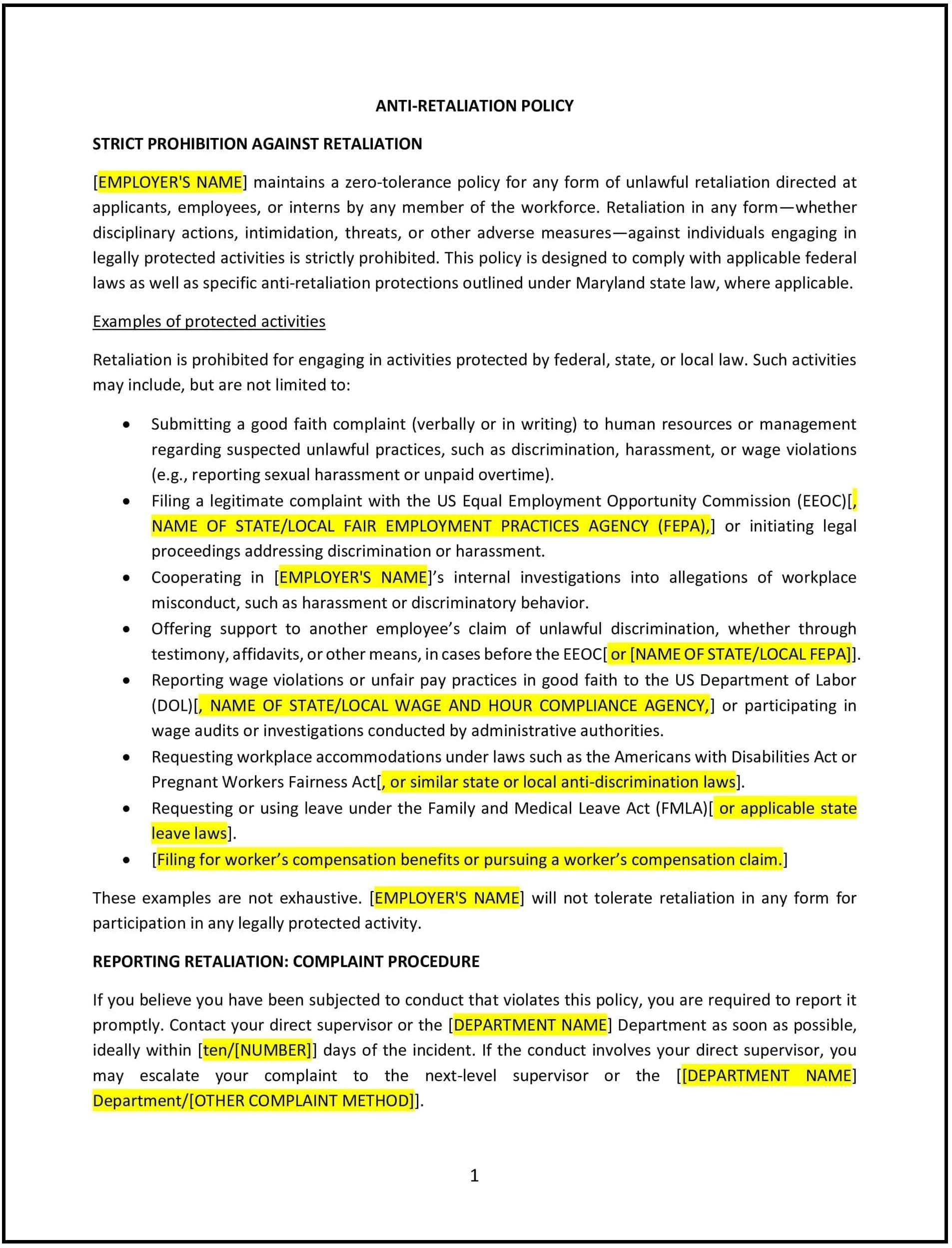Got contracts to review? While you're here for policies, let Cobrief make contract review effortless—start your free review now.

Customize this template for free
Anti-retaliation policy (Maryland)
This anti-retaliation policy is designed to help Maryland businesses protect employees who report misconduct, violations, or participate in workplace investigations. It ensures that employees feel safe coming forward with concerns without fear of retaliation, fostering a culture of transparency and accountability.
By adopting this policy, Maryland businesses can comply with state laws, support ethical practices, and encourage proactive resolution of workplace issues.
How to use this anti-retaliation policy (Maryland)
- Define retaliation: Clearly describe what constitutes retaliation, such as adverse actions taken against employees for reporting issues or participating in investigations.
- Establish protected activities: Identify activities protected under the policy, such as reporting harassment, discrimination, safety violations, or unethical practices.
- Set reporting procedures: Provide a confidential process for employees to report retaliation, including designated contacts or channels.
- Outline investigative steps: Detail how retaliation claims will be reviewed, including the timeline, confidentiality measures, and resolution process.
- Train employees and managers: Ensure all employees, especially supervisors, understand what constitutes retaliation and the consequences of violating the policy.
- Reinforce legal obligations: Highlight Maryland-specific legal protections against retaliation, such as those outlined under state labor laws or the Maryland Human Relations Commission.
- Include disciplinary measures: Specify the consequences for retaliation, such as corrective actions or termination.
- Conduct regular reviews: Periodically assess the policy to align with updates to Maryland’s workplace laws and organizational practices.
Benefits of using this anti-retaliation policy (Maryland)
Implementing this policy provides Maryland businesses with several advantages:
- Encourages transparency: Promotes an open workplace where employees feel safe addressing concerns.
- Protects against legal claims: Helps align with Maryland’s anti-retaliation statutes and reduces liability risks.
- Strengthens workplace culture: Builds trust and accountability by demonstrating a commitment to employee rights.
- Supports ethical practices: Reinforces the importance of addressing workplace issues in a fair and unbiased manner.
- Increases employee confidence: Ensures employees feel secure in reporting issues without fear of adverse consequences.
Tips for using this anti-retaliation policy (Maryland)
- Communicate the policy: Include the policy in onboarding materials, employee handbooks, and internal announcements to ensure awareness.
- Train management: Educate managers and supervisors on Maryland’s specific retaliation laws and their responsibilities under the policy.
- Encourage reporting: Provide multiple channels for employees to report retaliation, ensuring confidentiality and accessibility.
- Document all cases: Maintain detailed records of complaints, investigations, and resolutions to demonstrate compliance with Maryland’s legal standards.
- Review frequently: Update the policy regularly to reflect any changes in Maryland state laws or workplace practices.